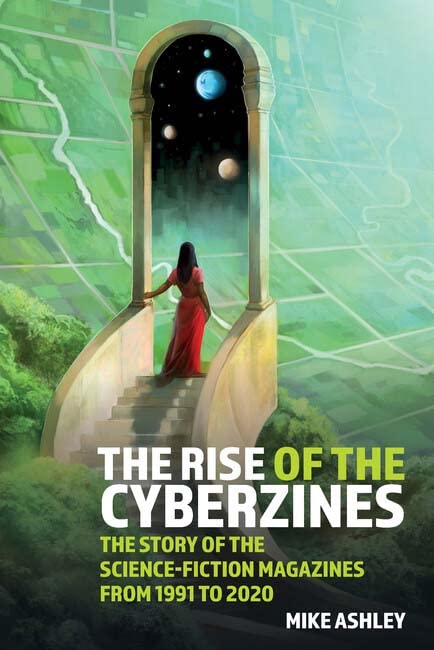
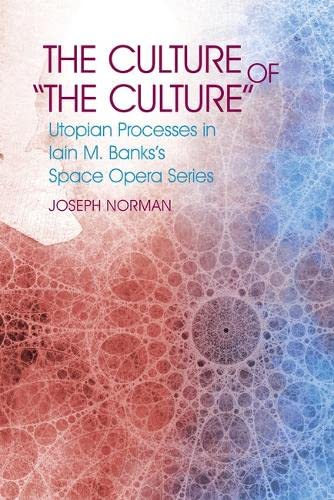
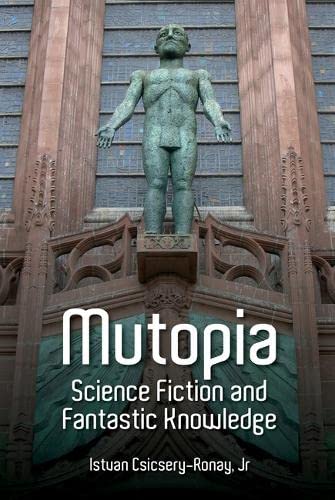
Liverpool Science Fiction Texts and Studies
Series · 10 books · 2022-2025
Books in series

#13
The Rise of the Cyberzines
The Story of the Science-Fiction Magazines from 1991 to 2020
2022
The Rise of the Cyberzines concludes Mike Ashley's five-volume series, which has tracked the evolution of the science-fiction magazine from its earliest days in the 1920s to its current explosion via the internet. This series has traced the ways in which the science-fiction magazine has reacted to the times and often led the way in breaking down barriers, for example in encouraging a greater contribution by women writers and stimulating science fiction globally. Magazines have continued to build upon past revolutions such as the 'new wave' and 'cyberpunk', producing a blend of high-tech science fiction and expansive speculative fiction that has broadened the understanding of science and its impact on society. This final volume, which covers the years 1991-2020, shows how the online magazine has superseded the print magazine and has continued to break down barriers, especially for the LGBTQ community and for writers of colour.

#65
The Culture of "The Culture"
Utopian Processes in Iain M. Banks's Space Opera Series
2023
In a career that spanned over thirty years, Iain M. Banks became one of the best-loved and most prolific writers in Britain, with his space opera series concerned with the pan-galactic utopian civilisation known as "the Culture" widely regarded as his most significant contribution to science fiction. The Culture of "The Culture" focuses solely on this series, providing a comprehensive, thematic analysis of Banks' Culture stories from Consider Phlebas to The Hydrogen Sonata. It explores the development of Banks' political, philosophical and literary thought, arguing that the Culture offers both an image of a harmonious civilisation modelled on an alternative socialist form of globalisation and a critique of our neo-liberal present. As Joseph Norman explains, the Culture is the result of an ongoing utopian process, attempting through the application of technoscience to move beyond obstacles to progress such as imperialism, capitalism, the human condition, religious dogma,
patriarchy and crises in artistic representation. The Culture of "The Culture" defines Banks' creation as a utopian way of doing, of being, of an approach, an attitude and a lifestyle that has enabled, and is evolving alongside, utopia, rather than an image of a static end-state.

#75
Mutopia
Science Fiction and Fantastic Knowledge
2022
The Enlightenment's project of establishing scientific proof for the unity of the universe led instead to the fragmentation of knowledge. The culture of certainty mutated into a culture of conjecture and speculative supplements as the image of a unified cosmos mutated into a patchwork totality. In the process, the pursuit of knowledge developed a symbiotic association with science fiction. While sf has often provided concrete ideas adopted by the knowledge faculties, equally important is the way science-fictional counterfactual world building - sf's "fantastic knowledge" - has intersected with rational speculation in all fields of knowledge. As a result, the dream of a completed, rationally engineered utopia has evolved into the image of "mutopia", in which the objects of knowledge, the process of knowing, and the science-fictional imagination itself are expected to undergo constant transformation. The essays in Mutopia address the science-fictional imagination's relevance for
scientific modeling, critical theory, the deconstruction of the future, the future of religion, the future of nations, the imagination of empire, the construction of aliens, the future of science fiction itself, and the transformation of utopia into mutopia. Written over many years by a leading scholar of science fiction, the essays are revised and expanded for republication in this collection, alongside new commentary that places them in an updated context.
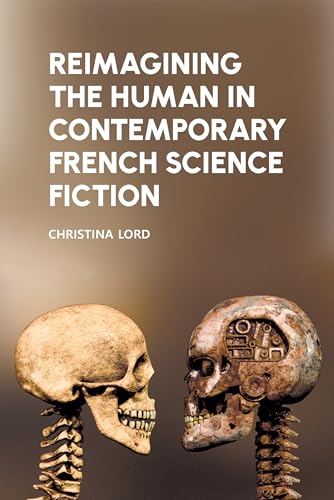
#78
Reimagining the Human in Contemporary French Science Fiction
2023
The study of French science fiction - even in France - remains an underexploited field. Only recently have French literary scholars been able to gain recognition for the validity of studying SF, but their works are often literary histories. This is the first book-length study to take into account both French and Anglo-American intellectual trends, theories, and SF scholarship and apply them to a corpus of French works. It shows how contemporary French SF imagines two broad philosophical inquiries into the powerful, yet terrifying geological age of the posthumanism and transhumanism. While the posthumanist perspective calls attention to the interdependence and co-evolution of humans and nonhumans within a complex ecosystem of life, the transhumanist view of coping with the Anthropocene offers more pragmatic, tool-based solutions, rather than a reworking of the human imagination. Given the history of philosophical thought?s entanglement with literature in France,
French SF can tell us a lot about this existential crisis of Anthropos as both destroyer and savior of worlds and bodies alike. With a focus on encounters between humans, nonhumans, and posthumans in selected works, this book investigates both the immaterial (the psychological state of the mind) and material (the body) stakes of posthumanist or transhumanist thinking in French SF.
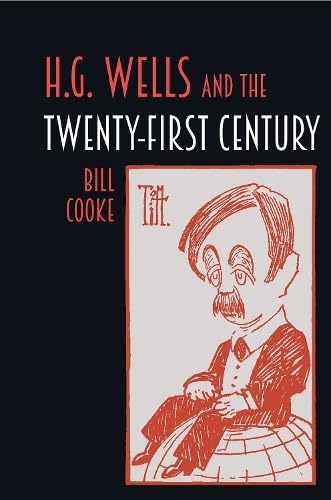
#79
H.G. Wells and the Twenty-First Century
2023
H.G. Wells has been branded as a novelist who betrayed his vocation. But Wells saw himself as what we would today call a public intellectual. How credible is this claim? And what happens when we look at him in this way? So typecast has Wells' reputation become that neither of these questions has been previously asked, but when we look at Wells as a thinker we find a whole new quality to his later works, which have invariably been dismissed by literary scholars as of low quality or even not worth reading. In particular, Wells' prescience as a prophet of our current environmental problems stands out - for example, he foresaw anthropogenic climate change as early as 1931. Popular conceptions of Wells as racist, imperialist and eugenicist are also challenged. What emerges is a new perspective on a significant public intellectual and- pioneering prophet of the twenty-first century.
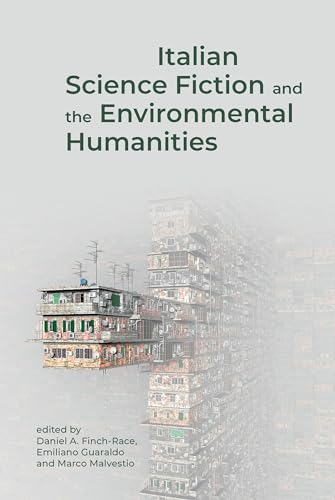
#80
Italian Science Fiction and the Environmental Humanities
2023
This volume explores Italian science fiction from the nineteenth century to the twenty-first, covering literary texts, films, music and visual works by figures as diverse as Maria Rosa Cutrufelli, Peter Kolosimo, Primo Levi, Antonio Margheriti, Gilda Musa and Roberto Vacca. It broadens the horizons of both Italian studies and the environmental humanities by addressing a long-neglected genre, and expands our understanding of relations between the ecological, the imaginary and the sociopolitical. The chapters draw on a variety of methodological frameworks, including animal studies, ecocriticism, ecofeminism, eco-media studies, energy humanities and posthumanism. The reader will gain insights into consequential topics such as anthropocentrism/speciesism, ecomodernist thought, environmental justice struggles at the planetary and regional level, non-human and new materialist ontologies, utopian/dystopian philosophies and prospects for transitioning beyond the crisis of petro-modernity
through the construction of post-depletion futures.
Open Access versions of the volume editors' introduction to the book, Marco Malvestio's chapter 'Spaceships in the Peter Kolosimo and the End of (Our) Times', Matteo Gilebbi's chapter 'Uncanny Spaces in Inhuman The Art of Giacomo Costa', Raffaella Baccolini and Chiara Xausa's chapter 'Ecofeminist Care at the End of the Collaborative Survival in Niccolo Ammaniti's Anna and Maria Rosa Cutrufelli's L'isola delle Madri', Daniel Finch-Race's chapter 'Industrial Workers and Pitfalls in Emile Souvestre's Le Monde tel qu'il sera en l'an 3000 (1846) and Agostino della Sala Spada's Nel 2073! (1874)' and Arielle Saiber's interview with Francesco Verso will be made available on publication.

#84
Dystopia and Dispossession in the Hollywood Science Fiction Film, 1979-2017
The Aesthetics of Enclosure
2023
Offering a survey of Hollywood science fiction cinema from 1979 to 2017 (from Ridley Scott's Alien to Denis Villeneuve's Blade Runner 2049 ), Dystopia and Dispossession in the Hollywood Science Fiction Film argues that the trajectory of Hollywood's dystopianism in that period is inextricable from the phenomenon of the 'new enclosures', the new dispossessions and privatisations sweeping across the United States since the 1970s. More precisely, it contends that the critiques of such dispossessions elaborated before the turn of the century - consider the satire of private policing in RoboCop (1987), the portrayal of commodified air in Total Recall (1990), and the nightmarish extrapolations of postmodern urbanism in Blade Runner (1982) and The Truman Show (1998) - begin to disappear in films such as The Matrix (1999), The Island (2005), District 9 (2009), Repo Men (2010), and The Purge (2013), the further commodification of land, forest, reservoir, ideas, even the human geno
diminished the contrast between capitalist and non-capitalist spaces on which the earlier critiques depended. Bringing close readings of blockbuster films into dialogue with historical and theoretical scholarship on dispossession, Dystopia and Dispossession in the Hollywood Science Fiction Film proposes a new understanding of the politics of science fiction in particular and utopian thought in general.
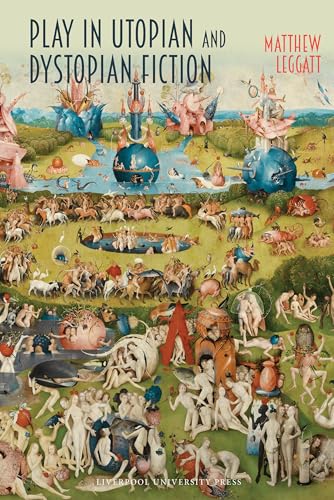
#86
Play in Utopian and Dystopian Fiction
2025
#87
Reading Chinese Science Fiction in the Age of Techno-Nationalism
2025
#90
The Science Fiction of Defeat
Future Wars in Spanish Culture (1870–1939)
2025
Authors
Bill Cooke
Author · 2 books
Bill Cooke is Professor of Management and Society at Lancaster University Management School. Previously he worked at the Institute for Development Policy and Management, Manchester School of Management, and Manchester Business School, all within what is now the University of Manchester; and at Teesside University.

Mike Ashley
Author · 38 books
Michael Raymond Donald Ashley is the author and editor of over sixty books that in total have sold over a million copies worldwide. He lives in Chatham, Kent.